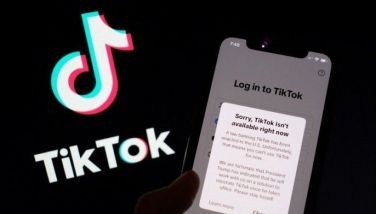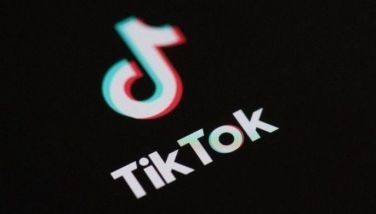Evolution of VAS
August 3, 2004 | 12:00am
I was scanning my wireless value-added service (VAS) Philippine archives just recently while cleaning up my hard drive and like a flash in the pan, I was suddenly gazing upon a revelation. Laid out before my very eyes were the stages of evolution of the hottest wireless application themes of the past few years. How interesting it was to witness such an evolution spawning from a Third World market like the Philippines but yet more mature on knowledge of wireless VAS than even the superpower United States. I am no fan of The American Idol show, but I was humbled when I learned that its polling via text messaging gathered 35 million SMS votes at a cost of $1 each! Our company has been doing polling via text in this country since 2001 but has never even got one percent of that number. In fact, text polling is now considered passé by our Philippine wireless standards since subscribers seldom participate in it.
Let me now share with you my very interesting discovery. In 2000, the hot VAS were products that integrated SMS functionality into a website which was a most practical concept considering our dismal PC penetration rate. The products that come to mind are Bidshot Auctions, Pinoy Auctions, BuynCell, etc. Unfortunately, all those I have mentioned are now in dot-com heaven, except for Bidshot which still enjoys a huge active and growing community of buyers and sellers. 2001 saw the birth of more interactive VAS such as LinkTV which provided SMS chat on TV, Chikka Instant Messenger which allowed PC-to-mobile connectivity, and others. These interactive applications offered a practical means of communications such that users adopted them in their daily lives as basic and simple as P2P texting. For Chikka IM, for instance, I hear that it is growing by 50,000 new subscribers daily even without marketing support! The year of text promos was 2002. Every retail product from Nestlé Ice Cream to Colgate Mintirinse joined the foray of rewards-based text games as a direct marketing tool. Every conceivable game concept from trivia to boogle was launched as an SMS promo that even a Senate inquiry was conducted to verify the legality of such promos. Like all fads though, the promo fever died a natural death.
A vacuum was created in early 2003 by a lull in innovations because the loss of promos threw application developers off-track. Then like a bolt of lightning, subscription-based services were born. These VAS products provided a user the convenience of simply subscribing once via a keyword (i.e. ON) to a particular content access code, and such content would be conveniently and automatically delivered to his mobile phone on a daily basis. Copycat content such as horoscopes, jokes, quotes, etc. sprouted but the most sustainable to date are the Startxt and Fanzone content services, which allow a user to subscribe to his favorite celebrity’s newsletter and receive daily text messages from the celebrity. Also, the same user can send a message to the celebrity who, upon his discretion, may reply to him.
I call 2004 the Year of the Load. We saw back-to-basics services but with built-in conveniences. The hot services that kicked off the year were Pasa Load and Share a Load. These services allowed real-time person-to-person transfer of credits with just a tap of your keypad. If I may say again, it was a great practical service which practically everyone I know of has utilized. Just recently, an offshoot of the load concept called TXT BAK was launched by an ingenious Paysetter International. This messaging service allows a subscriber to send a text message to any Globe subscriber and expect a reply since he is paying for it. In short, your textmate replies to you for FREE. There is no registration required and you may utilize it anytime by adding the number 23 before the 10-digit cellphone number of the person you are texting. (i.e. 239179876543). Similarly, Smart has just launched its own version called GIFTXT, developed by application developer ComWorks Inc. All a user has to do is simply add the number 9 before the 10-digit cellphone number of the person he is texting (i.e. 99189876543). The most basic innovations are usually the most brilliant. C’mon, wireless application developers, put on your thinking caps and innovate further!
Patrick Garcia is the managing director of Bidshot Wireless Services. For comments or suggestions, text your message to 233011 (Globe) or 2430018 (Smart), or e-mail [email protected].
Let me now share with you my very interesting discovery. In 2000, the hot VAS were products that integrated SMS functionality into a website which was a most practical concept considering our dismal PC penetration rate. The products that come to mind are Bidshot Auctions, Pinoy Auctions, BuynCell, etc. Unfortunately, all those I have mentioned are now in dot-com heaven, except for Bidshot which still enjoys a huge active and growing community of buyers and sellers. 2001 saw the birth of more interactive VAS such as LinkTV which provided SMS chat on TV, Chikka Instant Messenger which allowed PC-to-mobile connectivity, and others. These interactive applications offered a practical means of communications such that users adopted them in their daily lives as basic and simple as P2P texting. For Chikka IM, for instance, I hear that it is growing by 50,000 new subscribers daily even without marketing support! The year of text promos was 2002. Every retail product from Nestlé Ice Cream to Colgate Mintirinse joined the foray of rewards-based text games as a direct marketing tool. Every conceivable game concept from trivia to boogle was launched as an SMS promo that even a Senate inquiry was conducted to verify the legality of such promos. Like all fads though, the promo fever died a natural death.
A vacuum was created in early 2003 by a lull in innovations because the loss of promos threw application developers off-track. Then like a bolt of lightning, subscription-based services were born. These VAS products provided a user the convenience of simply subscribing once via a keyword (i.e. ON) to a particular content access code, and such content would be conveniently and automatically delivered to his mobile phone on a daily basis. Copycat content such as horoscopes, jokes, quotes, etc. sprouted but the most sustainable to date are the Startxt and Fanzone content services, which allow a user to subscribe to his favorite celebrity’s newsletter and receive daily text messages from the celebrity. Also, the same user can send a message to the celebrity who, upon his discretion, may reply to him.
I call 2004 the Year of the Load. We saw back-to-basics services but with built-in conveniences. The hot services that kicked off the year were Pasa Load and Share a Load. These services allowed real-time person-to-person transfer of credits with just a tap of your keypad. If I may say again, it was a great practical service which practically everyone I know of has utilized. Just recently, an offshoot of the load concept called TXT BAK was launched by an ingenious Paysetter International. This messaging service allows a subscriber to send a text message to any Globe subscriber and expect a reply since he is paying for it. In short, your textmate replies to you for FREE. There is no registration required and you may utilize it anytime by adding the number 23 before the 10-digit cellphone number of the person you are texting. (i.e. 239179876543). Similarly, Smart has just launched its own version called GIFTXT, developed by application developer ComWorks Inc. All a user has to do is simply add the number 9 before the 10-digit cellphone number of the person he is texting (i.e. 99189876543). The most basic innovations are usually the most brilliant. C’mon, wireless application developers, put on your thinking caps and innovate further!
BrandSpace Articles
<
>
- Latest
Latest
Latest
January 19, 2025 - 12:39pm
By Alex Pigman | January 19, 2025 - 12:39pm
January 19, 2025 - 10:05am
By Alex Pigman | January 19, 2025 - 10:05am
January 6, 2025 - 11:05pm
January 6, 2025 - 11:05pm
December 1, 2024 - 3:59pm
December 1, 2024 - 3:59pm
Recommended

























